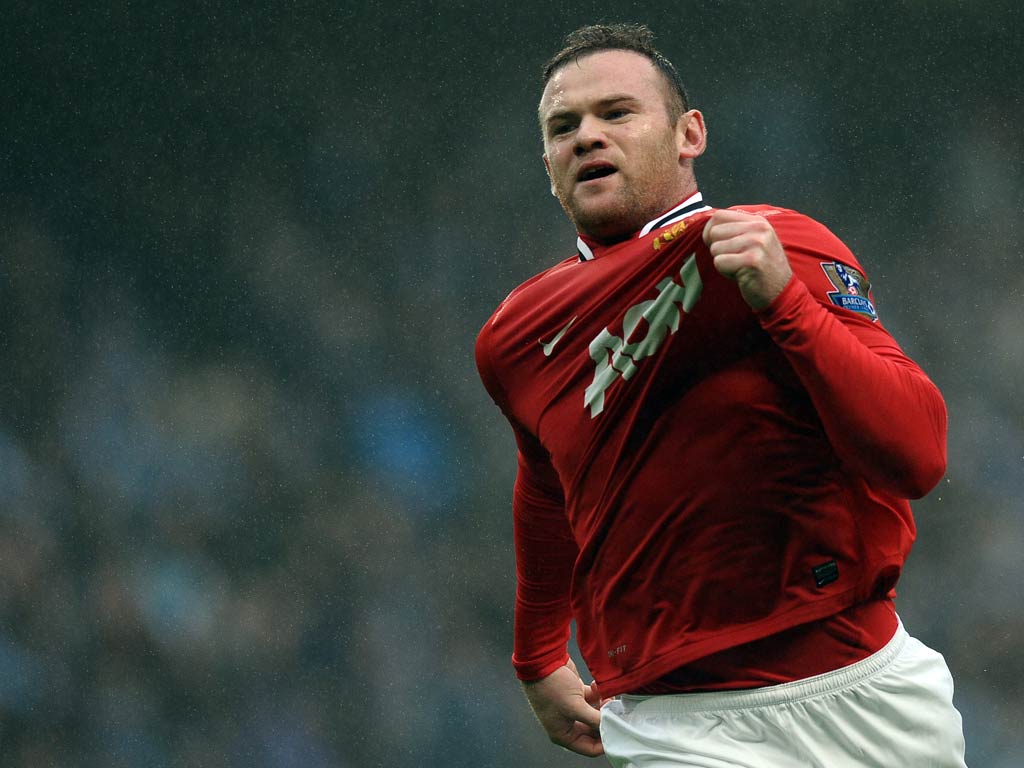James Lawton: It will take more than sporadic brilliance to save relationship with boss

Your support helps us to tell the story
From reproductive rights to climate change to Big Tech, The Independent is on the ground when the story is developing. Whether it's investigating the financials of Elon Musk's pro-Trump PAC or producing our latest documentary, 'The A Word', which shines a light on the American women fighting for reproductive rights, we know how important it is to parse out the facts from the messaging.
At such a critical moment in US history, we need reporters on the ground. Your donation allows us to keep sending journalists to speak to both sides of the story.
The Independent is trusted by Americans across the entire political spectrum. And unlike many other quality news outlets, we choose not to lock Americans out of our reporting and analysis with paywalls. We believe quality journalism should be available to everyone, paid for by those who can afford it.
Your support makes all the difference.No one ever said that Wayne Rooney was likely to leave Manchester United any time soon because he is no longer a magnificently gifted football player.
This self-evident fact yesterday burst, almost predictably, in the faces of Manchester City as Rooney scored two goals, one of them a magnificent header after superb approach play, before displaying a badge-kissing passion for United which was not quite so evident until the last 48 hours. Not, certainly, when he was dropped from the team and fined £200,000 for being physically incapable of contributing properly to a training session.
It meant that you did not have to read Glaswegian shorthand to understand the point his manager Sir Alex Ferguson was making even in the first rush of euphoria yesterday. Before welcoming a "magnificent" contribution from Rooney, Ferguson revealed that he had in the last few days presented to his player the spectre of Paul Gascoigne.
The subtext could hardly have been more explicit. On the field Gascoigne was so often the kind of dream Rooney was when he illuminated the drizzle of east Manchester. Off it, he became impossible to work with – even for a man as sympathetic to the pressures on a football celebrity as former England manager Terry Venables – and a permanent magnet for distracting attention.
No, there was not a fatted calf for the prodigal son in his latest glory – only the acknowledgement of the quality of what everyone had seen and the clear implication that it will take more than sporadic brilliance to restore to rude health a seriously damaged relationship with his manager, one which is almost certainly the most important he is ever likely to have as a professional.
When Rooney is as good as he was against City you have to head off to somewhere like Barcelona or Madrid to see better, but when he is bad, as he was against Newcastle last week, you have an equally long journey to see worse.
If Ferguson was less exultant than he might have been yesterday, it was possibly because of his sense that the disruption caused by Rooney's behaviour since his Boxing Day night celebration had contributed to some considerable extent to the loss of six points at a crucial point in the title race. The Cup win was hugely welcome, no doubt, but did it clear away all the other collateral damage? Ferguson would surely have been a little rash, even complacent, to say that.
He was, though, candid enough about his disappointment over his team's second-half performance, which saw a 3-0 lead and a man advantage shrink almost to nothing against superbly rearranged opponents. It was hard to decide which aspect of City's game was most impressive after referee Chris Foy – he of the disastrous distortion of the Stoke City-Spurs game – so grotesquely took away a competitive edge with a red card to Vincent Kompany on 12 minutes.
Roberto Mancini's half-time tinkering, which saw David Silva and Adam Johnson depart and a five-man back line put in, had the hallmark of an Italian maestro of defence. It would have been merely a memorable containment but for the brilliance of Sergio Aguero's challenge to be man of the match.
But Rooney got that award for the most persuasive of reasons – his dynamic shaping of the game.
Join our commenting forum
Join thought-provoking conversations, follow other Independent readers and see their replies
Comments